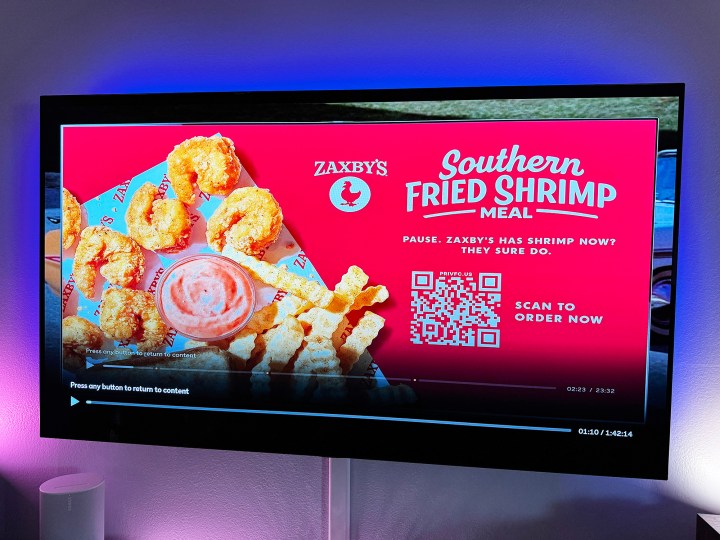
There’s been a bit of teeth-gnashing this week after Google — a company that makes its money off advertising — dared to talk about advertising in public.
Before we go any further, let’s stipulate that when it comes to advertising, there are only two kinds of people: Those who make money off ads one way or another, and those who are subjected to the ads. Generally speaking, the folks in the former category like advertising just fine. (It’d be a little weird if they didn’t.) And, generally speaking, the folks in the latter category probably would be just fine if they never saw another ad in their life.
Companies that sell ads like ads. Companies that buy ads like ads, because they alert more people to whatever it is they’re selling. And consumers that just want to watch or read whatever it is they’re watching or reading find ads obtrusive and annoying.
‘Twas ever thus.
This latest to-do involves what are known as “pause ads.” They’re not new. Streaming services like Hulu, Peacock, and Max have had them for a while. Hulu, in announcing them in January 2019, called them “a nonintrusive, viewer-initiated ad experience that is both delighting to viewers and effective for brands.”
The gist is that if you pause what you’re watching, a display ad will show up on the pause screen. Not video. Not audio. A static advertisement. Again, not new.
Pause ads are new to Google, though. And they come at a slightly fraught time in which folks — and to be clear, we’re talking about a relatively small number of folks — are on edge because of the introduction of a not-quite-screensaver feature on the YouTube app on Apple TV, which some have (rightfully) seen as another possible avenue to get advertising in our collective faces.
Here’s what Philipp Schindler, Google’s chief business officer, had to say on April 25 during the company’s first-quarter 2024 earnings call: “In Q1, we saw strong traction from the introduction of a pause ads pilot on connected TVs — a new, non-interruptive ad format that appears when users pause their organic content. Initial results show that pause ads are driving strong brand lift results and are commanding premium pricing from advertisers.”
In other words, Google likes them. Advertisers like them. (You wouldn’t see them at all, ever, if both of those things weren’t true.) And users likely will either hate them or tolerate them. You’ll hear from the former. You’ll never hear from the latter, outside of focus groups.

I’m not a huge fan of advertising. (Despite it, ya know, ultimately paying my bills.) I get rid of it when I can, because I can largely afford to. And I don’t begrudge companies like Google finding new ways to sell ads because that is, after all, its job. Google doesn’t owe us anything as consumers. (Except maybe for better data privacy, but that’s another thing for another day.)
I pay for YouTube Premium because I loathe preroll ads. I use an ad-blocker on my entire home network — less so because of display ads themselves, and more because of all the ancillary tracking that comes with it.
But when it comes to pause ads? I just can’t get upset. If I pause a video — whether it’s on YouTube or any other service — it’s almost certainly because I need to stop focusing on the screen for a minute and do something else. The minute I hit the pause button, what’s on the TV ceases to be important in that instant. That’s why I paused it in the first place. That goes for the show or movie I was watching. And it goes for any advertising on the screen. I just. Don’t. Care.
If pause ads are working well for Google and for advertisers, great. More power to them. There’s nothing inherently evil about advertising — companies and other entities need to be able to get their messages across. (I’d pay real money to never see another political ad, though.) And there’s nothing inherently evil about pause ads.
This is one of those times when a very small number of folks are making a bit of noise because they see something new that they don’t like. It’s important to see the forest for the trees here. Ads aren’t going away, unless you pay to make them go away. (But even then, they never totally disappear.) And if pause ads enable Google (and others) to bring in revenue and continue doing business, fine. Because they’re far less intrusive than pretty much every other kind of ad.



